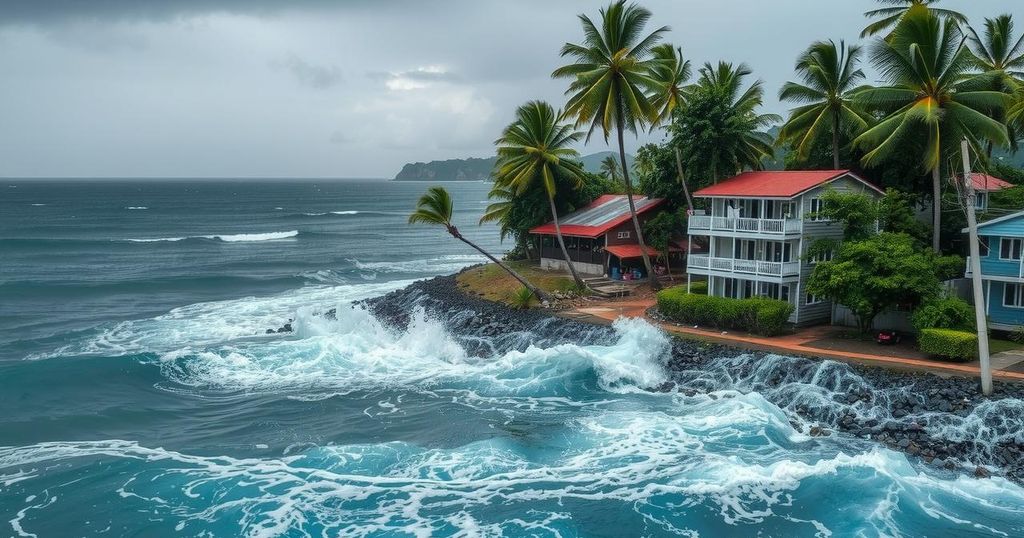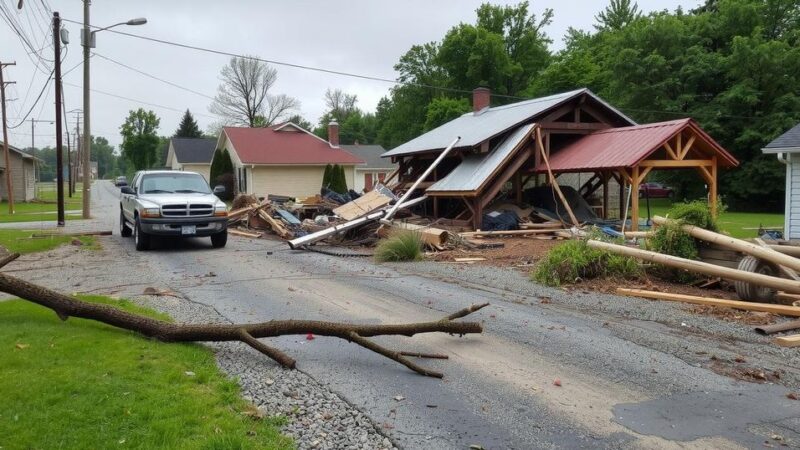On December 14, 2024, Tropical Cyclone Chido made landfall on Mayotte, presenting as a category-4 equivalent storm, resulting in two fatalities and significant destruction across the island. Authorities issued maximum alerts and shelters were established to protect residents. The cyclone is projected to affect several countries, with heavy rainfall expected in the region.
Tropical Cyclone Chido struck the island of Mayotte on December 14, 2024, landing with unprecedented force as a category-4 equivalent cyclone, marking the most devastating cyclone in nearly nine decades. This catastrophic event resulted in extensive damage across the territory, leading to reports of two fatalities. Mayotte’s capital city suffered near-total destruction, prompting local authorities to issue a maximum alert and direct all residents to seek shelter, including rescue workers, due to the cyclone’s high winds reaching up to 230 km/h (143 mph).
In response to the emergency, approximately 70 schools and gyms were converted into shelters, with road traffic banned and the airports closed. The local government advised the island’s 320,000 inhabitants to remain indoors as rescue efforts continued. The cyclone’s impact was also felt in the neighboring Comoros archipelago and Madagascar, where flooding was reported.
Meteorological observations highlighted the cyclone’s well-formed structure in its initial stages, although the eye became less defined by midday. The storm benefitted from favorable conditions, including high sea surface temperatures and strong outflow, which could potentially enhance its strength as it moved west-southwest towards Mozambique, where landfall was anticipated shortly after. Cyclone Chido is predicted to affect approximately 2.7 million people across several countries in the region, including Comoros, Madagascar, Malawi, Mauritius, Seychelles, and Mozambique, with heavy rains expected to extend into Zimbabwe and Zambia.
Tropical cyclones are intense circular storms that originate over warm tropical oceans and are characterized by low atmospheric pressure, high winds, and heavy rains. Cyclone Chido’s landfall in Mayotte occurred under ideal conditions for cyclogenesis, as the region experienced optimal sea surface temperatures and low vertical wind shear, fostering significant storm development. The recent impact of Chido showcases the escalating threats that climate change poses to island nations and coastal regions, contributing to more severe and frequent weather events.
Cyclone Chido has left a profound mark on Mayotte, prompting emergency responses and revealing the vulnerabilities of the region’s infrastructure. With devastating winds and extensive damage reported, the cyclone has tragically resulted in loss of life while displacing countless residents. As Chido advances across the Indian Ocean, it remains a stark reminder of the growing dangers posed by tropical cyclones in a changing climate.
Original Source: watchers.news







